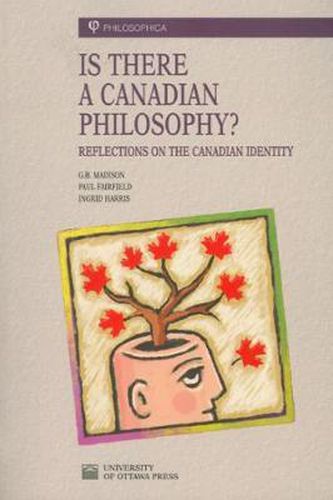Readings Newsletter
Become a Readings Member to make your shopping experience even easier.
Sign in or sign up for free!
You’re not far away from qualifying for FREE standard shipping within Australia
You’ve qualified for FREE standard shipping within Australia
The cart is loading…






Is There a Canadian Philosophy? addresses the themes of community, culture, national identity, and universal human rights, taking the Canadian example as its focus. The authors argue that nations compelled to cope with increasing demands for group recognition may do so in a broadly liberal spirit and without succumbing to the dangers associated with an illiberal, adversarial multiculturalism. They identify and describe a Canadian civic philosophy and attempt to show how this modus operandi of Canadian public life is capable of reconciling questions of collective identity and recognition with a commitment to individual rights and related principles of liberal democracy. They further argue that this philosophy can serve as a model for nations around the world faced with internal complexities and growing demands for recognition from populations more diverse than at any previous time in their histories.
$9.00 standard shipping within Australia
FREE standard shipping within Australia for orders over $100.00
Express & International shipping calculated at checkout
Is There a Canadian Philosophy? addresses the themes of community, culture, national identity, and universal human rights, taking the Canadian example as its focus. The authors argue that nations compelled to cope with increasing demands for group recognition may do so in a broadly liberal spirit and without succumbing to the dangers associated with an illiberal, adversarial multiculturalism. They identify and describe a Canadian civic philosophy and attempt to show how this modus operandi of Canadian public life is capable of reconciling questions of collective identity and recognition with a commitment to individual rights and related principles of liberal democracy. They further argue that this philosophy can serve as a model for nations around the world faced with internal complexities and growing demands for recognition from populations more diverse than at any previous time in their histories.